អត្ថបទពាណិជ្ជកម្ម
Fostering good gardening habits at a young age of Green Apple International School
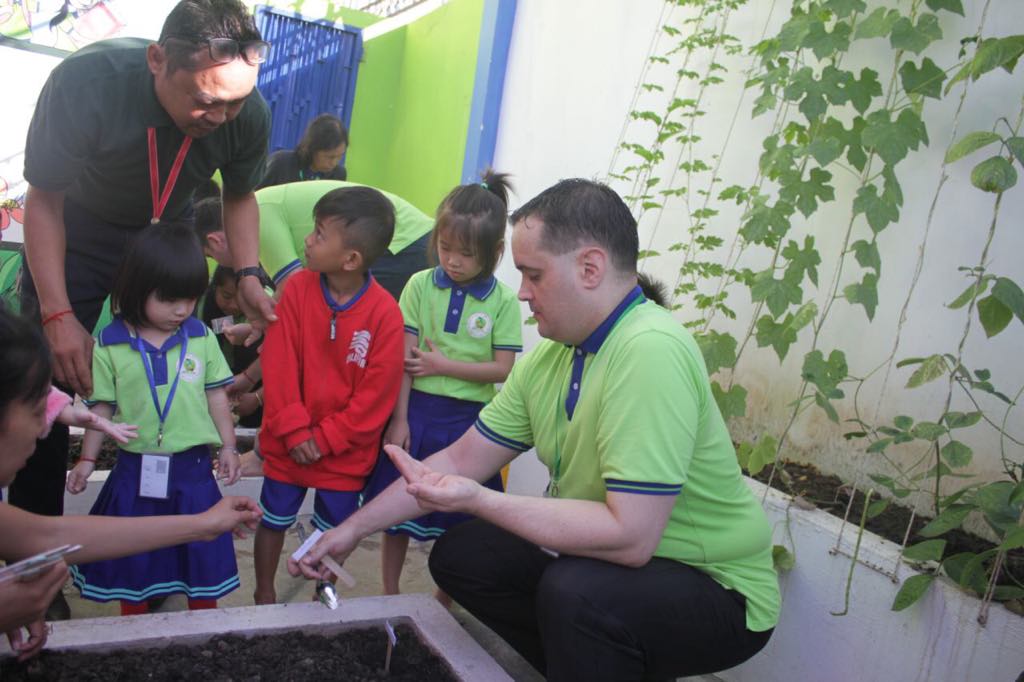
×![]()
At Green Apple International School, we are always looking for opportunities for kids to grow, and we love finding teachable moments. Gardening offers wonderful and amazing opportunities for kids to play, learn, care and grow together!
We have all heard that being outside in the fresh air has amazing health benefits. We have also heard that planting flowers or vegetables can be therapeutic. But did you know that gardening has amazing developmental benefits for kids?
Engages All The Senses
Kids learn best when engaging all their senses. With gardening, kids can touch and feel the dirt, seeds and flowers, see the vibrant colors and varied sizes of the plants, hear the sound of the vegetable when it is taken from the plant and smell the amazing scents of the flowers. Allowing all the senses to be involved helps kids understand and grasp the concept of gardening along with all the math and scientific concepts that go along with it.
Encourages Healthy Eating
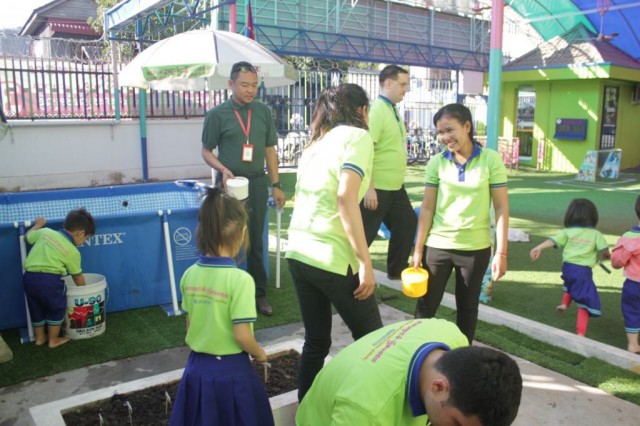
Eating healthy food is vital for brain and body development but it can be hard at times to get kids to eat those fruits and veggies. By having them grow their own string beans, carrots and lettuce, they will have a sense of pride in eating what they have “created.” This, in turn, will emphasize the importance of healthy eating. Kids will soon learn to love eating vegetables even fruits! Gardening encourages kids to eat fruits and vegetables which leads to a healthy lifestyle.
Enhances Fine Motor Development
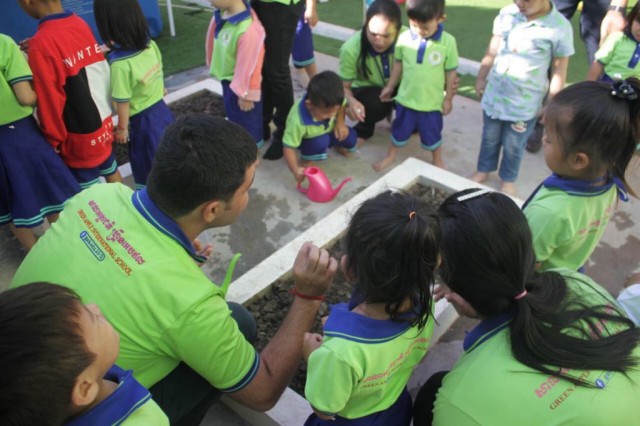
Scooping up the dirt, placing the seeds in the pots and pouring the water all take fine motor control and strength. As kids garden, they develop important motor skills that will help them improve their academic skills such as writing, cutting and typing.
Introduces Kids To Scientific Concepts
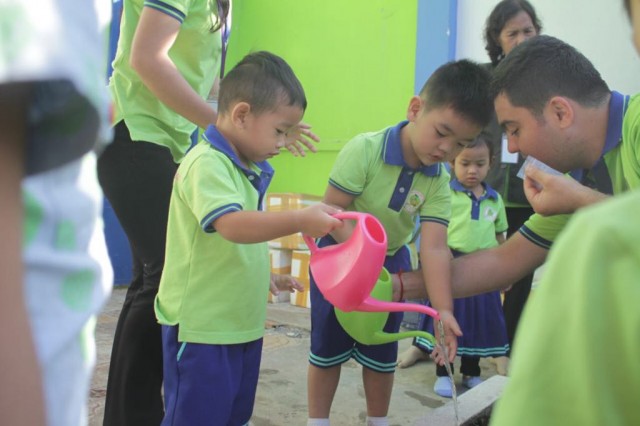
Gardening is a wonderful introduction into the world of science especially botany, biology and chemistry. When kids plant their first seeds they become curious about what will happen next. They make their own hypothesis and monitor the progress each day. Without even realizing it, kids are learning the basic steps of the scientific process.
As kids get older, they learn about the impact of sunlight and water on the growth of a plant. They learn which plants need more sunlight, which need less water and how long they take to grow. Gardening offers wonderful science lessons right at home. Planting vegetables is a fun gardening activity that is also a wonderful scientific experiment.
As kids get older, they learn about the impact of sunlight and water on the growth of a plant. They learn which plants need more sunlight, which need less water and how long they take to grow. Gardening offers wonderful science lessons right at home. Planting vegetables is a fun gardening activity that is also a wonderful scientific experiment.
Fosters Family Bonding
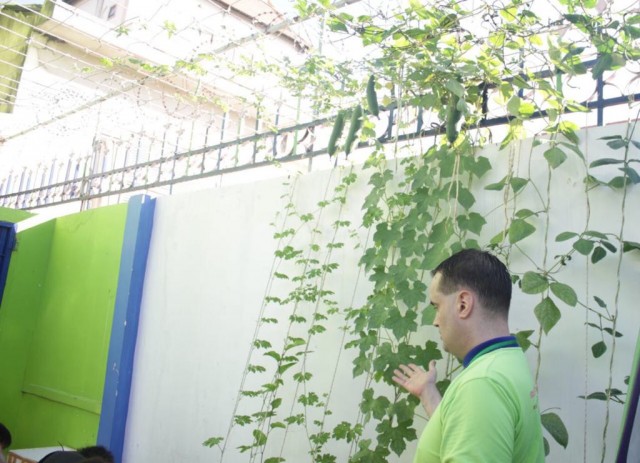
I have so many friends that love to garden with their parents. In fact, it is often a spring tradition that carries well into adulthood. This shows what a wonderful bonding effect gardening can have. Kids and parents can work together to decide what flowers and vegetables to plant and where to plant them. Families can then work together to make meals using the vegetables they have grown.
Teaches Responsibility
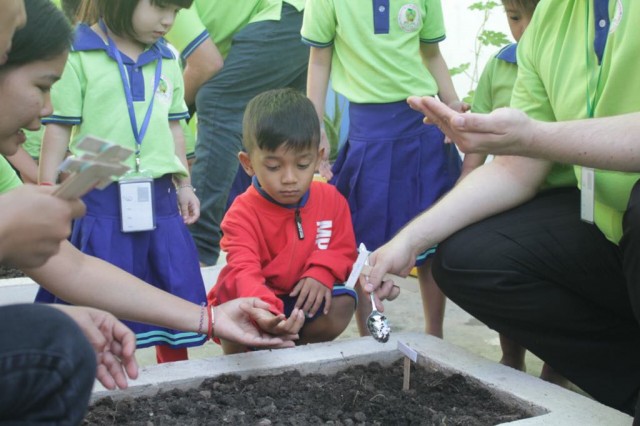
Gardening is a great way to teach kids about responsibility. Kids learn that they have to take care of their seeds each day in order for them to become healthy plants. To help, you can make a checklist that kids can use to make sure they care for their plant every day. Gardening teaches kids to be responsible for their plants by caring for them every day!
Develops Math Skills

There are so many teachable math moments when gardening from measuring the soil depth to counting the seeds. You can also embed math lessons into the gardening experience. For example, your child can measure the growth of the plant and then create a graph. Kids can also measure and compare the sizes of the vegetables as well the number of petals on the flowers. Another fun lesson is to identify all the different shapes that can be found in the garden. This is a great introduction to Geometry.
Teaches Patience
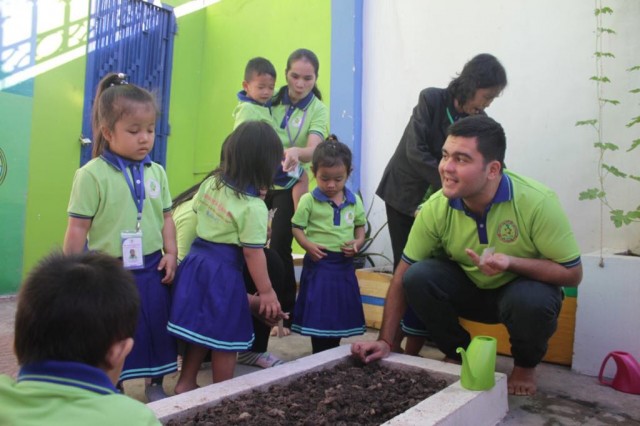
As I begin the gardening process with my children, it has become abundantly clear how important it is to have patience. Kids are used to immediate gratification; however, gardening is often a slow process. Kids have to learn to be patient when waiting for their flowers and vegetables to grow. The waiting actually makes the moment the flower or vegetable sprouts even more exciting! When gardening, kids have to patiently wait for their seeds to grow!
Enhances The Ability To Plan And Organize
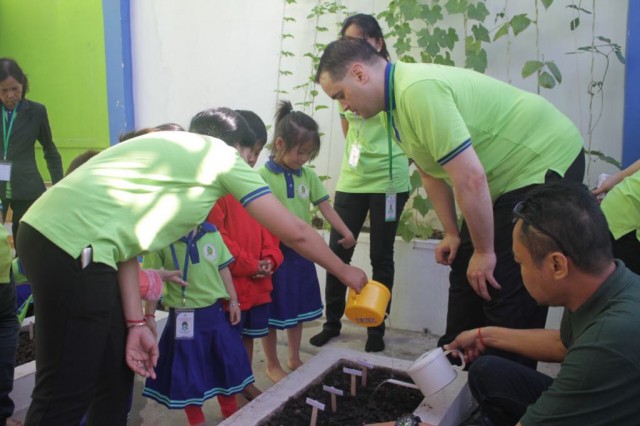
For those that garden regularly, you understand that planning and organizing a garden can be time consuming and somewhat of an art form. You have to know what flowers bloom during what time of year, how long it takes a seed to actually turn into a vegetable and when is the best time to plant your seeds. Involving kids in this process helps increase their planning and problem solving skills. It also enhances their organizational strategies which can be carried over to every facet of life!
(Sponsored)
អត្ថបទទាក់ទង
(Sponsored)
© រក្សាសិទ្ធិដោយ thmeythmey.com
«ប្រេសិត»មានន័យដូចម្តេច?
5 ថ្ងៃ





















